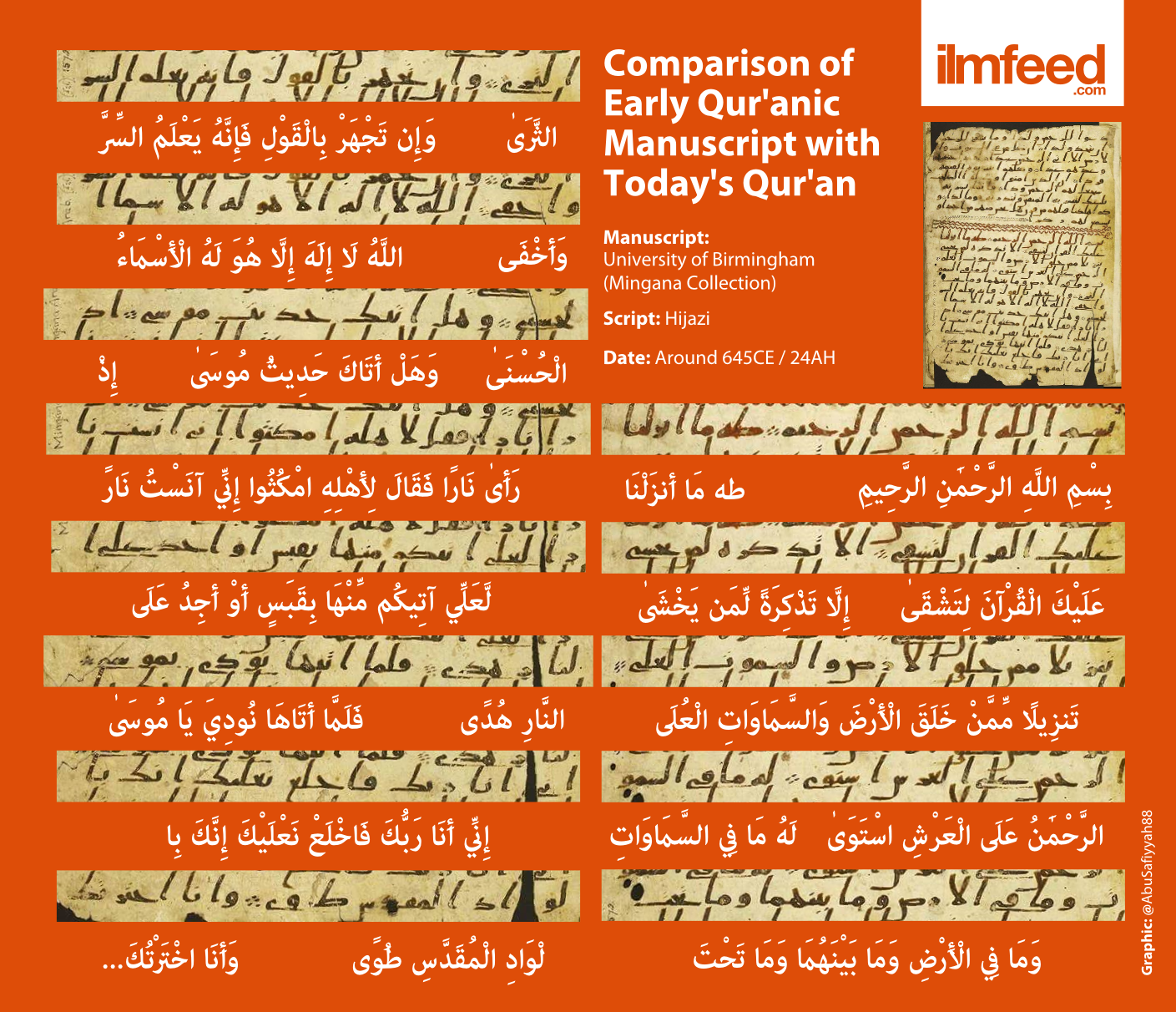The discovery of a Qur’anic manuscript in the University of Birmingham has made headlines worldwide as it is thought to be one the oldest anywhere in the world.
Radiocarbon testing of the manuscript, which is written in the Hijazi script dates it between 568 and 645 AD (24AH) and there is a possibility it was written by a companion of the Prophet Muhammad (peace and blessings be upon him). Though the Qur’an was transmitted orally the Prophet instructed some companions to write it down on parchments leaves. Islam’s third Caliph, Uthman (may Allah be pleased with him) was the first to compile the whole Qur’an into one canonical corpus.
So how does it compare to the Qur’an of today? Below is a comparison of a part of the manuscript (the beginning few verses of Surah Taha):
The above graphic shows that they are identical. No words or letters are out of place. Muslims consider the Qur’an to be the word of God and hold it to be a living miracle. Its preservation is mentioned in the the fifteenth chapter:
“Indeed, it is We who sent down the Qur’an and indeed, We will be its guardian.” Surah Al Hijr, Verse 9
Here is a translation of the verses shown in the graphic:
1. Ta, Ha.
2. We have not sent down to you the Qur’an that you be distressed
3. But only as a reminder for those who fear [ Allah ] –
4. A revelation from He who created the earth and highest heavens,
5. The Most Merciful Istawa (rose over) the Throne (in a manner that suits His Majesty).
6. To Him belongs what is in the heavens and what is on the earth and what is between them and what is under the soil.
7. And if you speak aloud – then indeed, He knows the secret and what is [even] more hidden.
8. Allah – there is no deity except Him. To Him belong the best names.
9. And has the story of Moses reached you? –
10. When he saw a fire and said to his family, “Stay here; indeed, I have perceived a fire; perhaps I can bring you a torch or find at the fire some guidance.”
11. And when he came to it, he was called, “O Moses,
12. Indeed, I am your Lord, so remove your sandals. Indeed, you are in the sacred valley of Tuwa.
13. And I have chosen you, so listen to what is revealed [to you].
By Abu Safiyyah



